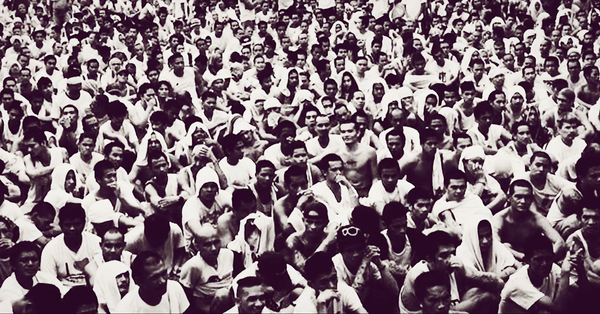Youtube still from 'A jail in a jailed nation' (Finalist in the ANPUD Short Films Competition 2018)
Nowhere to hide: It’s high time we measured countries’ performance in drug policy
Traditionally, the UN and governments have measured progress in drug policy in terms of flows and scale; principally the numbers of people arrested, hectares of drug crops eradicated and the amounts of drugs seized. For years now, IDPC and many civil society colleagues (in particular the Global Drug Policy Observatory (GDPO), CELS, the Centre on Drug Policy Evaluation, and the Social Science Research Council among others), have advocated against such an approach, because of its inability to truly assess the real impacts of drug control policy – especially for communities affected by the illicit drug trade on the one hand and by drug policies on the other.
The 2016 UN General Assembly Special Session (UNGASS) was instrumental in pushing the boundaries of UN drug policy to consider issues related to health, human rights, social inclusion, criminal justice reform and how all of this might contribute to the 2030 Agenda for Sustainable Development. However, while recent years have seen a welcome increase in focus on the adverse health consequences of drug use and interventions aiming to reduce them, the United Nations Office on Drugs and Crime (UNODC) and many member states have thus far been resistant to incorporate these critical elements into their main data collection tool – the Annual Reports Questionnaire (ARQ). The ongoing review of this tool has so far been a missed opportunity to fully reconsider what success in global drug policy should look like.
In 2018, IDPC published our landmark Shadow Report ‘Taking stock: A decade of drug policy’, in which we assessed the progress made – or rather, the lack thereof – in global drug policy since the adoption of the 2009 Political Declaration and Plan of Action on drugs, to inform the Ministerial Segment of March 2019. Collaborative work by the IDPC network and other civil society experts was instrumental to obtaining a full picture of the global situation relating drug control approaches on demand and supply, but also on the impacts of drug policies on the broader UN priorities of promoting human rights, development, and advancing peace and security. What we found was extremely worrying. While the UN was in many ways side-stepping difficult questions, drug policies in many parts of the world had become responsible for increased HIV and hepatitis C infections among people who inject drugs, half a million drug use-related deaths in 2015 alone, and tens of thousands of people falling victim to extrajudicial killings, as well as arbitrary and compulsory detention. In the meantime, the prevalence of drug use, the hectares of crops cultivated for the illicit drug trade, and the tons of drugs trafficked had reached record highs. But far from being a wake-up call, UN drug policy debates in Vienna have mainly continued to rely on the business-as-usual approach.
Faced with the clear lack of appetite from both governments and the UN to evaluate the impacts of drug control on communities worldwide in any meaningful way, it seems likely that civil society will once again need to take a proactive stance. The critical role played by civil society in holding governments accountable by creating transparent and informative policy evaluation tools is not a new idea. This has been done before in various policy areas. For instance, Transparency International has, for some time now, been tracking progress made by countries across the world in reducing corruption, with the Global Corruption Perception Index. Journalists without Borders has done the same with their World Press Freedom Index. And the list continues. Indeed, it is now widely recognised that the ‘soft power’ of indices is capable of exerting considerable social pressure and can – via a number of interrelated process – be a potent lever for the generation of policy change.
With this in mind, IDPC and GDPO have now embarked on a similar endeavour, faced with the urgent need to develop a tool that would enable us to track drug policy developments worldwide in a systematic and scientific way, as well as to assess how effective these turned out to be on the ground. The results of this analysis would enable us to compare policies adopted between various countries, and track evolution over time, as well as rank countries according to how well their drug policies have been able to foster improved health, human rights protection, gender equality, social inclusion or violence reduction.
Learning from other composite indices, the proposed Global Drug Policy Index (GDPI) would be a collaborative civil society endeavour (as was the case for the Shadow Report), with the aim of increasing transparency in decision making processes around drugs, promoting new indicators to evaluate drug control, facilitating the participation of civil society in data collection, and ultimately supporting more humane policies and reforms.
We are still in the preliminary stages of development and fundraising for this ambitious tool, but we are excited by the advocacy opportunities that a carefully designed Global Drug Policy Index will bring to the global and national debates on drug policy for the years to come. Stay tuned for more information!
Regions
Related Profiles
- International Drug Policy Consortium (IDPC)
- Global Drug Policy Observatory (GDPO)
